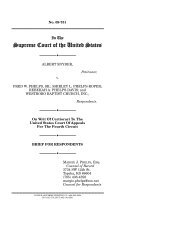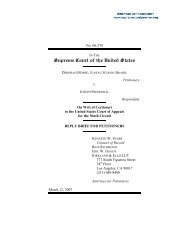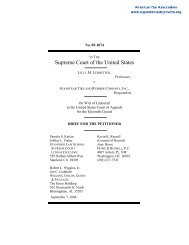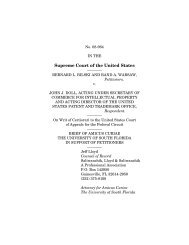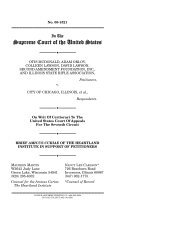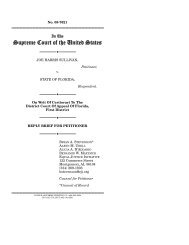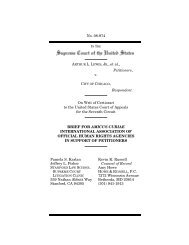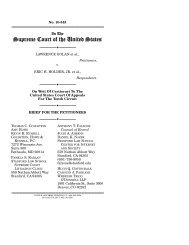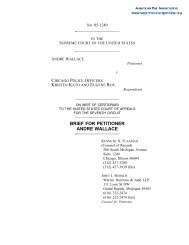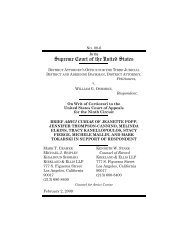Brief of respondent for Florida v. Powell, 08-1175 - Oyez
Brief of respondent for Florida v. Powell, 08-1175 - Oyez
Brief of respondent for Florida v. Powell, 08-1175 - Oyez
You also want an ePaper? Increase the reach of your titles
YUMPU automatically turns print PDFs into web optimized ePapers that Google loves.
35<br />
the Fifth Circuit concluded that the decision <strong>of</strong> the<br />
Texas Court <strong>of</strong> Criminal Appeals upholding the<br />
warning was not “objectively unreasonable.” Id. at<br />
860. The court indicated, however, that the outcome<br />
would have been different on direct review. See id. at<br />
860 n.6 (highlighting habeas context and noting that<br />
a prior decision holding that “a suspect must be<br />
explicitly warned that he has the right to counsel<br />
during interrogation . . . remains binding precedent<br />
<strong>for</strong> cases on direct appeal in this Circuit”).<br />
Beyond its limited application to the habeas<br />
context, Bridgers involved a warning that the Texas<br />
court found materially different from the <strong>for</strong>m read to<br />
<strong>Powell</strong>. The Texas court determined that the warning<br />
sufficiently conveyed the right to counsel during<br />
interrogation primarily on the basis that the suspect<br />
was told he had a right to the “presence” <strong>of</strong> counsel<br />
be<strong>for</strong>e questioning. Id. at 857-58. The Texas court<br />
distinguished that from warnings, similar to the ones<br />
given <strong>Powell</strong>, that advise only <strong>of</strong> the right to “consult<br />
or speak to an attorney be<strong>for</strong>e questioning, which<br />
might have created the impression that the attorney<br />
could not be present during interrogation.” Id.; accord<br />
id. at 860 n.5.<br />
Finally, as noted above, in considering a petition<br />
<strong>for</strong> certiorari on direct appeal in Bridgers, Members<br />
<strong>of</strong> this Court stated that the warnings “apparently<br />
leave out an essential Miranda element.” Bridgers,<br />
532 U.S. at 1034. The Bridgers case thus supports,<br />
rather than contradicts, the decision below.



